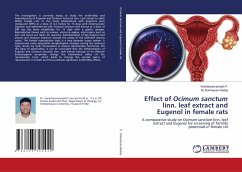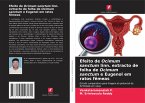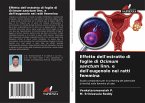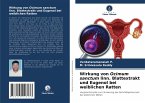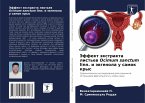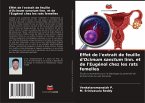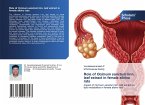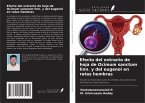The investigation is currently trying to study the antifertility and hepetotoxicity of Eugenol and Ocimum Sanctum Linn. Leaf extract in adult Wistar female rats. In this study administered with Eugenol's pure compound (99%) at a dose of 0.4 ml/day for 15 days with intramuscular injection and administered with Ocimum sanctum leaf extract at a dose of 500 mg /kg body weight/day for 15 days with a gastric gavage, Reproductive tissues such as ovaries, uterus & vagina, vital organs such as liver and serum are taken for learning. Administration of the Eugenol leaf extract and Ocimum Sanctum change the phase of the different estrous cycles. The female reproductive tract is a very dynamic organ system. It experienced many sequential morphological changes during the oestrous cycle, driven by cyclic fluctuations in several reproductive hormones. On this basis of observation, it can be concluded that the administration of Eugenol and Ocimum Sanctum Linn. Leaf extract because of its effective antiestrogenic properties change the biochemical milieu of the reproductive tract, which leads to change the normal status of reproduction in female and thus produces significant antifertility effects.

